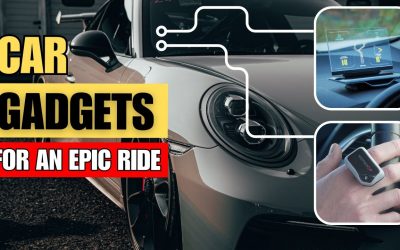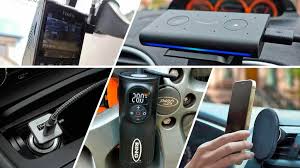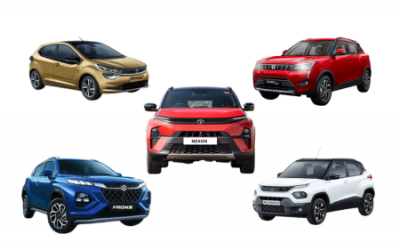The automotive industry has long been defined by the idea of car ownership— a symbol of independence, success, and personal freedom. However, a shift is underway, driven by the generation that is starting to make its mark as the next wave of consumers: Generation Z. Born between the mid-1990s and the early 2010s, Gen Z is challenging traditional notions of car ownership in ways that are reshaping the automotive landscape. As this group of tech-savvy, environmentally-conscious, and socially-aware individuals enters the market, their preferences, values, and behaviors are influencing how cars are bought, used, and viewed.
In 2022, the shift in attitudes towards car ownership is undeniable. From an increasing preference for alternative transportation to a growing focus on sustainability, here’s how Gen Z is redefining car ownership.
1. Preference for Shared Mobility Over Ownership
One of the most significant changes in car ownership is Gen Z’s preference for shared mobility. Unlike previous generations who viewed owning a car as a rite of passage, many Gen Z consumers are more inclined to use alternatives like car-sharing, ride-hailing, and scooter-sharing services. Companies such as Ola, Uber, Zomato (delivery), and Spin (electric scooters) have become the go-to for many of them, especially in urban areas.
Car-Sharing Platforms
Car-sharing services like Zoomcar and Drivezy are becoming increasingly popular with Gen Z. These platforms allow users to rent cars on an hourly or daily basis, offering the flexibility to access a vehicle only when needed. This model eliminates the long-term commitment, insurance costs, and maintenance burdens associated with owning a car.
- Affordability: For Gen Z, owning a car can be a significant financial commitment. With student loans, increasing living costs, and fluctuating job markets, many are choosing the convenience and affordability of car-sharing services rather than spending on an asset that depreciates over time.
- Convenience and Flexibility: Car-sharing offers unparalleled convenience. Whether they need a car for a weekend getaway or a short trip to the store, Gen Z can easily access a vehicle without worrying about maintenance or ownership hassles.
Ridesharing and Taxi Services
The rise of services like Uber and Ola is another indicator of how Gen Z is moving away from traditional car ownership. These services allow users to easily summon a ride without having to deal with parking, insurance, or car payments. Ridesharing is particularly appealing to young urban dwellers who may not need to drive daily.
- Environmentally Conscious Choices: Many Gen Z users opt for ridesharing because of its lower carbon footprint compared to owning a personal car, especially when shared rides can cut down on the number of cars on the road.
2. Emphasis on Sustainability and Electric Vehicles (EVs)
Gen Z is perhaps the most eco-conscious generation in history. With rising concerns about climate change, environmental degradation, and the future of the planet, Gen Z is making more sustainable choices, and the car they drive (or don’t drive) is no exception. This generation is increasingly prioritizing electric vehicles (EVs) and other low-emission alternatives.
The Rise of Electric Vehicles
Electric vehicles are quickly gaining popularity among Gen Z due to their zero emissions and environmental benefits. Automakers like Tata Motors, Hyundai, Mahindra, and Ola Electric have already started to capture the attention of young car buyers with affordable, stylish, and eco-friendly EVs.
- Affordable EV Options: In 2022, many automakers introduced budget-friendly EV models aimed at the younger demographic. For instance, the Tata Nexon EV and Tigor EV have gained attention for offering affordable entry points into electric car ownership.
- Sustainability First: Gen Z’s desire for sustainable living is not just about driving electric cars; it extends to how they make transportation choices. They prefer brands that align with their environmental values and are more likely to support car manufacturers that demonstrate a commitment to sustainable practices and reduce their carbon footprint.
3. Digital Experience and Online Car Shopping
Gen Z has grown up in a digitally connected world, where everything from shopping to banking happens online. As a result, car buying and ownership are no longer confined to traditional dealerships or physical spaces. Many in this generation prefer to do everything from researching cars to purchasing them online. This shift has prompted automakers to focus on providing a seamless digital experience for consumers.
Online Car Buying Platforms
In 2022, platforms like CARS24, CarDekho, and Spinny have revolutionized the car-buying process by making it easier to buy, sell, or exchange cars online. These platforms offer a more transparent, convenient, and flexible way to shop for vehicles compared to traditional methods.
- Virtual Showrooms: These platforms offer virtual showrooms, allowing Gen Z to browse car models, view 360-degree images, check car specifications, and even take virtual test drives—all from the comfort of their home.
- Financing and Documentation: The entire process of financing and documentation can also be completed online, further streamlining the car-buying experience for Gen Z. This convenience is one of the primary reasons why younger buyers prefer digital car shopping over the traditional dealership experience.
Transparency and Information
Gen Z values transparency and accessibility. They prefer platforms that give them easy access to detailed information about a car’s history, pricing, and condition. Online tools that provide financing options, car valuations, and user reviews allow them to make informed decisions about car purchases.
4. The Decline of Traditional Car Ownership Models
For Gen Z, the concept of traditional car ownership is evolving. While they still value the freedom a car offers, the notion of maintaining a car as a long-term asset is becoming less appealing. This shift can be attributed to several factors:
Affordability and Economic Uncertainty
Gen Z is entering the workforce in a challenging economic environment, with many still grappling with the financial implications of student loans, rising living costs, and unstable job markets. The financial burden of car ownership—including car payments, insurance, maintenance, and fuel—is a significant deterrent.
- Shared Mobility: As a result, many in Gen Z are opting for alternatives like car-sharing, ride-hailing, and public transportation rather than locking themselves into the long-term financial commitment of owning a car.
Urbanization and Public Transport
With the rise of urbanization, more and more young people are choosing to live in cities where public transport options are often more convenient and affordable than car ownership. In cities like Mumbai, Delhi, and Bengaluru, where traffic congestion and parking are major issues, Gen Z prefers using public transportation, bikes, or shared mobility services for daily commuting.
5. Connectivity and In-Car Technology
Technology plays a huge role in shaping Gen Z’s preferences for cars. This generation is used to having technology integrated into every aspect of their lives, and they expect the same from their vehicles. In 2022, car manufacturers began focusing on enhancing in-car connectivity, infotainment, and advanced tech features to attract younger buyers.
Infotainment and Connectivity Features
Cars with cutting-edge infotainment systems, smartphone integration, and advanced driver-assistance systems (ADAS) are high on the wish list for Gen Z buyers. Features like Apple CarPlay, Android Auto, Bluetooth connectivity, and wireless charging are must-haves for this tech-savvy generation.
- Autonomous Driving: Gen Z’s interest in autonomous driving technology is growing, driven by the desire for convenience and safety. While fully autonomous cars are still in the developmental stages, companies like Tesla, Waymo, and Nuro are testing self-driving vehicles that align with Gen Z’s futuristic and tech-focused mindset.
Conclusion: The Future of Car Ownership is Changing
Gen Z’s influence on the automotive industry is undeniable. Their preferences for shared mobility, sustainability, digital car buying, and advanced in-car technology are significantly reshaping the future of car ownership. In 2022, traditional car ownership is no longer the goal for many young consumers—flexibility, convenience, and sustainability are their top priorities.
As automakers and mobility providers adapt to these changing demands, they will need to develop innovative solutions that cater to Gen Z’s values. From electric vehicles to car-sharing platforms and connected cars, the future of transportation will be vastly different from what we’ve known, and Gen Z will be at the heart of that transformation.
0




